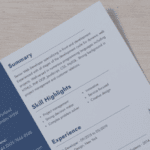- Profile Evaluation
- Countries
Beginner's Doubts
Study in USA
- Exams
- Finances
- Documents
Beginner's Doubts
Statement of Purpose (SOP)
Letter of Recommendation (LOR)
Other Documents
- Case Studies
Case Studies
- How Udit got an admit from University of Rochester With Rs. 28 Lakhs Scholarship
- 90th ranked to the 10th Ranked university in USA for MSBA - with $18,000 Dean scholarship - Anmol created history with Ace My Prep
- A distance learning BBA and just 1 year experience, no GMAT, was enough to get Vatsal into his dream school
- Journey of Jivika - 3 GPA fresher background, along with the Profile enhancement of Ace My Prep, got into the best Business and Brand Analytics universities of USA
- Journey of Anuj - From not getting any top 30 universities in his free shortlists to getting a direct admission to the 9th ranked university with a scholarship
- Journey of Sanchit - 48% in Bcom and the best MBA universities of the world. Is it Possible?
- Journey of Sahil - Mumbai University to Imperial College London
- Journey of Gowtham - From Loyola College, Chennai to London Business School
- Journey of Harsh - From a Bachelor's dropout to a 100,000$ scholarship in a Top 30 USA university
- Journey of Hitansu - Boston University MBA With $45,000 Scholarship
- acemyprep.com
- GRE Overview
- GRE Syllabus
GRE Syllabus

Pragya Sharma ✅
Co-Founder @ Ace My Prep & Study Abroad Expert
- 91,182 Views

GRE exam syllabus measures verbal reasoning, quantitative reasoning, critical thinking, and analytical writing skills that are necessary for success in higher education. The GRE exam syllabus is composed of three sections – GRE Analytical Writing, GRE Verbal Reasoning, and GRE Quantitative Reasoning. ETS, who develops the GRE gives an overview of the syllabus covered in these three sections which helps us to understand the content and skills required for the GRE exam.
The GRE exam is divided into two sections: the GRE General Test and the GRE Subject Test. Each person’s GRE syllabus is unique.
GRE General Test: The GRE General Test is a standard examination that assesses students’ verbal, mathematical, and analytical writing abilities.
GRE Subject Test: A GRE Subject Test may be required by the college for more specialised courses, as the GRE Subject Test concentrates on judging the candidate’s proficiency in specific disciplines.
GRE Verbal Syllabus:
The GRE Verbal section or GRE Verbal Reasoning measure test takers ability to:
- Analyze and evaluate written material in the form of sentences, paragraphs, and passages
- Synthesize information obtained from this material
- Analyze relationships among component parts of sentences, and
- Recognize relationships among words and concepts.
List of Topics Covered Under the GRE Verbal Syllabus
- Basic Sentence structure: Nouns, Pronouns, Adjectives
- Verb Tense
- Idioms & Idiomatic Expressions
- Pronoun Agreement
- Subject-Verb Agreement
- Modifiers
- Parallelism
GRE Quantitative Syllabus:
The GRE Quantitative Reasoning measure the GRE assesses High school mathematics and statistics – basic mathematical skills, understanding of elementary mathematical concepts. It does not include trigonometry, calculus or other higher-level mathematics. The GRE allows the use of a calculator in the Math section, however not all questions require you to use the calculator.
Some of the quant questions are based on real-life scenarios while other questions are based on pure mathematical settings.
Topics That are Tested on the GRE Quant Section Are:
Arithmetic-topics include properties and types of integers, such as divisibility, factorization, prime numbers, remainders, and odd and even integers; arithmetic operations, exponents and roots; and concepts such as estimation, percent, ratio, rate, absolute value, the number line, decimal representation and sequences of numbers.
Algebra-topics include operations with exponents; factoring and simplifying algebraic expressions; relations, functions, equations and inequalities; solving linear and quadratic equations and inequalities; solving simultaneous equations and inequalities; setting up equations to solve word problems; and coordinate geometry, including graphs of functions, equations, and inequalities, intercepts, and slopes of lines.
Geometry-topics include parallel and perpendicular lines, circles, triangles, quadrilaterals, other polygons, congruent and similar figures, three-dimensional figures, area, and perimeter, volume, the Pythagorean Theorem and angle measurement in degrees.
Data analysis-topics include descriptive statistics, such as mean, median, mode, range, standard deviation, inter-quartile range, quartiles, and percentiles; interpretation of data in tables and graphs, such as line graphs, bar graphs, circle graphs, box-plots, scatter-plots, and frequency distributions; elementary probability of compound events and independent events; random variables and probability distributions, including normal distributions; and counting methods such as combinations, permutations, and Venn diagram.
GRE Analytical Writing Syllabus
The GRE Analytical Writing measure test takers ability:
- In critical thinking and analytical writing skills
- To articulate and support complex ideas
- To construct and evaluate arguments
- To sustain a focused and coherent discussion
There are two tasks in this section:
- Analyze an Issue
- Analyze an Argument
The tasks come from a wide range of subjects – from the fine arts and humanities to the social and physical sciences – but no task requires specific content knowledge.
GRE Subject Test Syllabus and Question Types
The GRE Subject Test lasts for 2 hours and the only question type is Multiple Choice Questions depending on the subjects you have selected.















